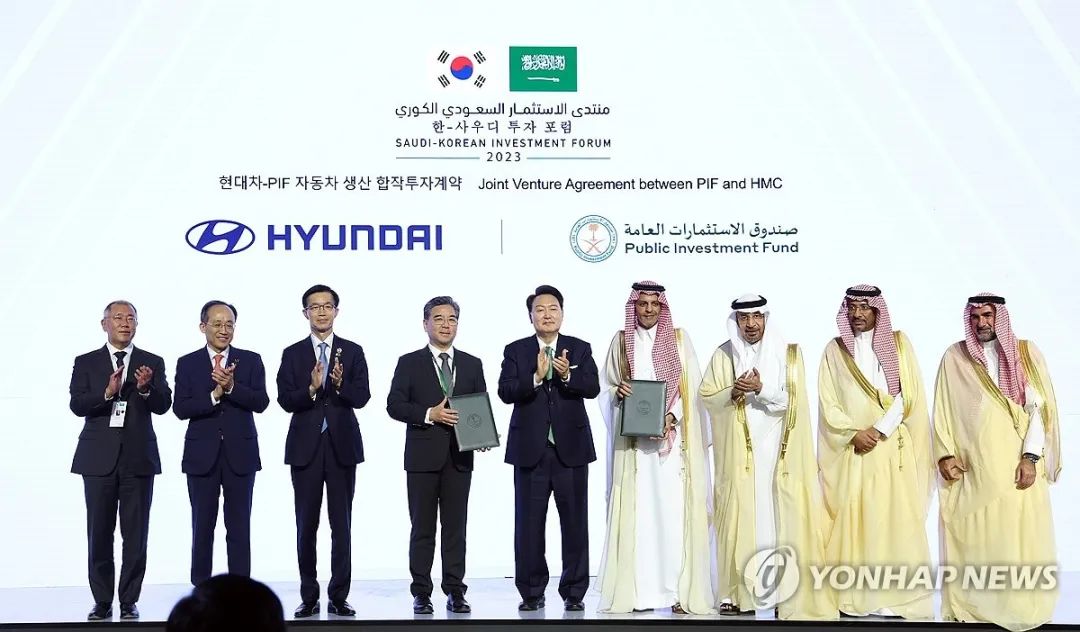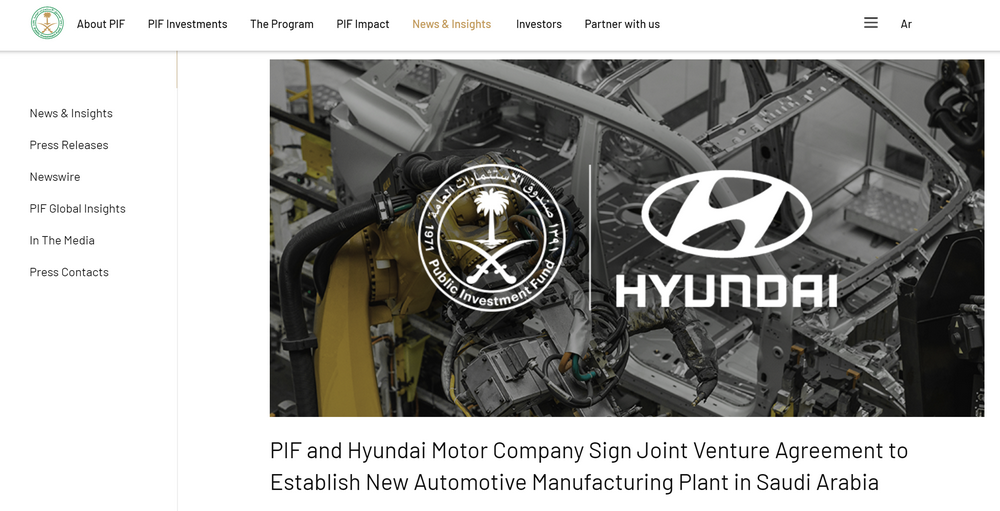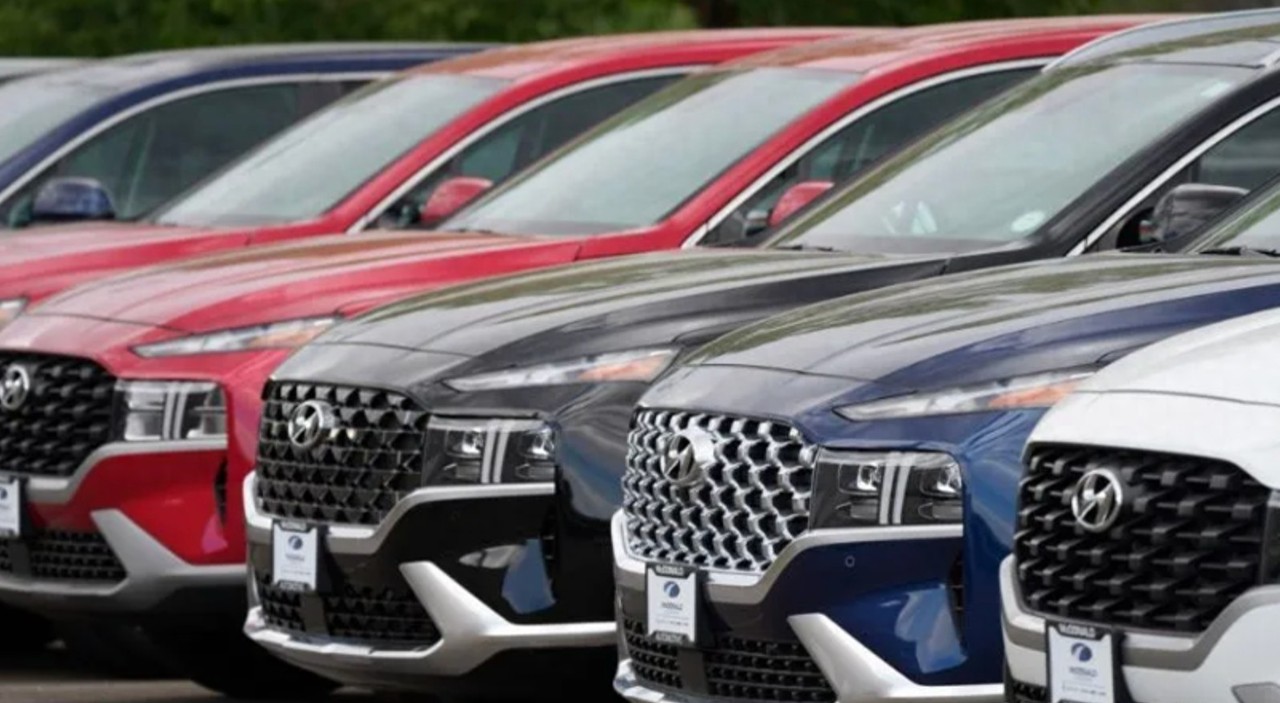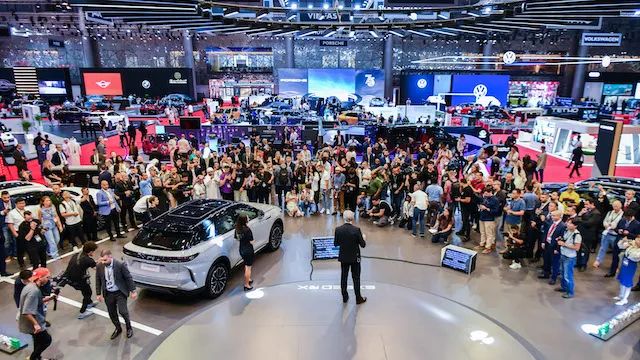In addition to Weibo, there is also WeChat
Please pay attention

WeChat public account
AutoBeta


2024-07-27 Update From: AutoBeta autobeta NAV: AutoBeta > News >
Share
AutoBeta(AutoBeta.net)10/23 Report--
It is reported that South Korea's Hyundai Motor Group and Saudi Arabia's sovereign wealth fund "Public Investment Fund" (PIF) have signed a joint venture agreement to build a CKD car manufacturing plant with an annual production capacity of 50, 000 vehicles in King Abdullah's Economic City (KAEC). It is understood that the two sides will jointly invest more than 500 million US dollars, and when the new plant is established, it will produce electric cars and fuel vehicles, which is also Hyundai's first factory in the Middle East.

What is CKD? That is, in the form of full parts as a proprietary term for imported vehicle models, locally produced parts are assembled into complete vehicles with lower tariffs and wages, using local labor force, and provided at lower retail prices. In other words, Hyundai may build a final vehicle assembly plant in Saudi Arabia, excluding parts factories, which will be imported from outside and sold after assembly in Saudi Arabia.
PIF, the kingdom's wealth fund, confirmed the joint venture in a statement and said the new factory "will create thousands of jobs and allow the transfer of knowledge and expertise". When the new plant is established, PIF will own 70 per cent of the new joint venture plant and Hyundai will hold the remaining 30 per cent. "Hyundai Motor Group will also support the development of the new plant as a strategic technology partner by providing technical and commercial assistance," the joint statement said. "

According to reports, construction of the factory will start in the first half of next year, mass production will begin in early 2026, and the first batch of cars is expected to be offline in 2026. However, there is no relevant information on the exact location of the factory and the models to be produced.
It is also reported that in addition to building a plant in Saudi Arabia, Hyundai Motor Group, South Korea's third-largest carmaker by sales, plans to increase its annual sales in the Middle East to 550000 vehicles. Hyundai said it hopes to sell more than 550000 vehicles a year in the Middle East by 2030, of which Hyundai plans to sell 350000 and Kia 210000. To this end, Hyundai plans to achieve an average annual sales growth rate of 6.8% from this year and increase its market share in the region to 20% by 2030. In terms of new car products, according to the plan, Hyundai Motor Group's lineup of electric vehicles in the Middle East will more than double from the current six models by 2027, and the proportion of electric car sales in the region will increase to more than 15% by 2032. Kia also plans to expand its line-up of electric vehicles in the region, and Kia plans to increase its range from the current 4 to 11.

Data show that from January to September 2023, Hyundai sold 163000 vehicles in the Middle East market and 118000 in Kia. Although the sales of the two companies increased by 14.2% compared with the same period last year, there is still a big gap between 550000 vehicles.
The partnership will allow Hyundai to join electric carmaker Lucid Motors Inc. To further expand the electric vehicle market. Saudi Arabia is one of the largest car markets in the Middle East. Saudi Arabia is actively promoting the local production of pure electric vehicles. In February this year, Saudi local electric car brand CEER Motors established a partnership with Hon Hai Precision Industry Co., Ltd., BMW, and plans to achieve the annual production target of 170000 pure electric vehicles. In addition, as Hyundai Motor Group begins to produce cars in Saudi Arabia, Saudi Arabia has also invested heavily in the field of electric vehicles. It is understood that billions of dollars have been invested in the development of electric vehicle projects. It plans to produce more than 300000 cars a year by 2030.

In fact, with the increasing penetration of new energy vehicles, the global car market is also changing, especially in China. With the rising tide of China's car exports, more and more domestic car companies have turned their attention to overseas markets. In the middle of last month, SAIC announced that it had started work on the location of the car assembly plant in Europe, while BYD executives said at the Munich auto show in September that the location of the European vehicle plant would be determined by the end of the year. In addition to the European market, Southeast Asia and the Middle East are also popular export destinations for new domestic car-building forces, including Zero, Nezha, Lantu and other brands have been sold in Thailand, Indonesia and Israel.
Welcome to subscribe to the WeChat public account "Automotive Industry Focus" to get the first-hand insider information on the automotive industry and talk about things in the automotive circle. Welcome to break the news! WeChat ID autoWechat
Views: 0
*The comments in the above article only represent the author's personal views and do not represent the views and positions of this website. If you have more insights, please feel free to contribute and share.











© 2024 AutoBeta.Net Tiger Media Company. All rights reserved.